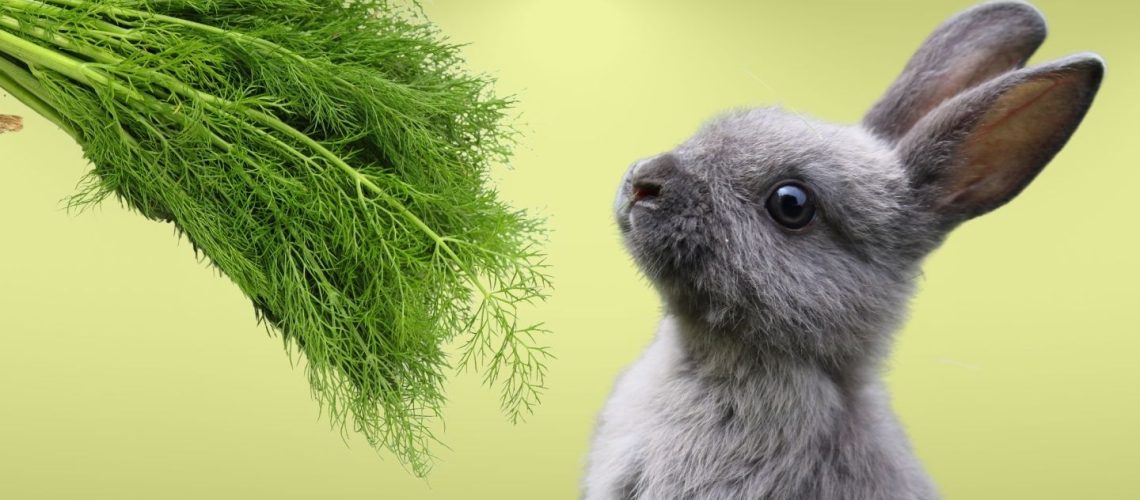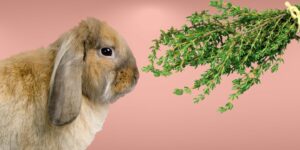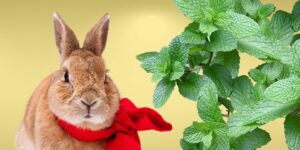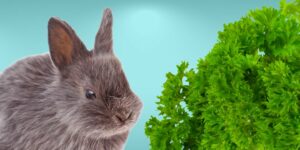Yes, rabbits can eat dill. It is a healthy and tasty herb that can be a great addition to a rabbit's diet. However, it should only be given in moderation as a treat, and not as a replacement for a rabbit's regular diet.
Introduction
What is dill?
Dill is an aromatic herb commonly used in cooking, and it belongs to the Apiaceae family, the same plant family as parsley, carrots, and celery. Its feathery leaves are sometimes referred to as "dillweed," and it is known for its fresh, slightly tangy, anise-like flavor.
Why might rabbit owners consider adding it to their pet's diet?
Dill can provide a variety of nutritional benefits for rabbits, making it an appealing addition to their regular diet. Its unique flavor can also help to add variety and pique your rabbit's interest in their food.
Nutritional Content of Dill
Vitamins and minerals
Dill is rich in essential vitamins and minerals, including vitamins A, C, and E, as well as calcium, iron, and manganese. All of which are important for maintaining good health in rabbits.
Antioxidants and other beneficial compounds
In addition to vitamins and minerals, dill also contains antioxidant compounds, such as flavonoids and polyphenols. These can help protect your rabbit's cells from damage caused by free radicals.
Health Benefits of Dill for Rabbits
Immune system support
The vitamin C content in dill can help support your rabbit's immune system, keeping them better equipped to fight off infections and illnesses.
Eye health
Vitamin A is essential for good eye health, and including dill in your rabbit's diet can help maintain their eyesight.
Bone and teeth health
Calcium and manganese, both found in dill, are essential for maintaining strong bones and teeth in rabbits.
Digestive health
Dill can also have a positive impact on your rabbit's digestive health, as it contains compounds that may help reduce inflammation and soothe the digestive tract.
Preparing Dill for Rabbits
Fresh vs dried
Dill can be given to rabbits fresh or dried. Fresh dill can be chopped and added to a rabbit's hay or pellet mix or fed as a standalone treat. Dried dill can also be offered as a treat, but it should be rehydrated before feeding to prevent choking.
Washing and chopping
Before feeding dill to your rabbit, it's essential to wash it thoroughly to remove any dirt, pesticides, or other contaminants. Chop the dill into small, manageable pieces for your rabbit to eat safely.
Mixing with other foods
You can mix dill with other safe vegetables or herbs to provide a healthy, varied treat for your rabbit.
Feeding Guidelines and Safety Tips
Appropriate portion size
When it comes to feeding dill to rabbits, moderation is key. Too much dill can lead to digestive upset and other health problems. As a general rule, dill should only make up a small portion of a rabbit's diet, no more than 10% of their daily food intake.
Gradually introducing dill
Start with a small amount of dill when introducing it to your rabbit's diet, and increase the portion size over time. This will give your rabbit's digestive system time to adjust and prevent any adverse reactions.
Monitoring your rabbit for adverse reactions
It's essential to watch your rabbit for any signs of digestive upset or allergy when introducing them to a new food. If you notice any unusual behavior or symptoms, stop feeding your rabbit dill and consult your veterinarian.
Avoiding overfeeding
Be cautious not to overfeed your rabbit dill or any other treats, as it can lead to obesity and other health problems.
Alternatives to Dill for Rabbits
Other safe herbs
There are other safe herbs that rabbits can enjoy in moderation, including basil, parsley, cilantro, mint, and oregano.
Additional dietary supplements
Rabbits can also benefit from consuming a variety of vegetables, fruits, and other supplements to maintain a balanced diet.
Frequently Asked Questions
Can rabbits eat dill seeds?
Rabbits can eat dill seeds in moderation, but due to their higher oil content, they should only be given occasionally as a treat.
Can rabbits eat dill flowers?
Yes, rabbits can eat dill flowers as well, as they are safe and non-toxic.
Can rabbits eat other herbs and spices?
Rabbits can enjoy a variety of safe herbs, as mentioned previously. However, when it comes to spices, many can be harmful or toxic to rabbits, so it's best to avoid giving them spices.
Conclusion
The importance of a balanced diet cannot be overstated for maintaining a healthy rabbit. Dill can safely be incorporated into your rabbit's diet, but it's essential to do so in moderation and as a supplement to their regular food. By following these guidelines, you can ensure that your rabbit benefits from the nutritional value of dill while maintaining their overall health.











